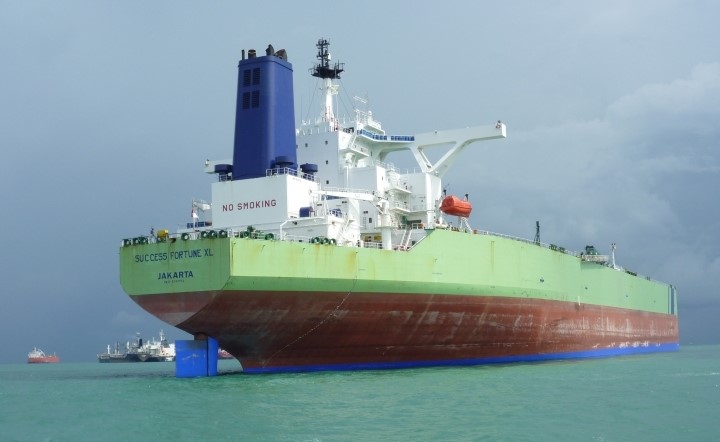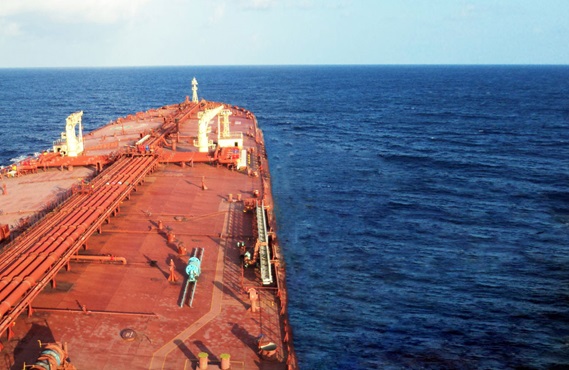Spotlight on Indonesian shipping: interview with Handara Utomo, COO of Soechi Lines
08 Aug 2018
Read our article on Seaview magazine
With the largest economy in Southeast Asia, a young population and a government committed to economic transformation, Indonesia is seeing positive signs of growth ahead. As the economy develops, the country’s shipping industry will benefit from fresh demand for energy, chemicals and raw materials. At Soechi Lines, we are well placed to take advantage of any short- or long-term increases in energy demand with our fleet of oil tankers, chemical tankers, gas carriers and FSOs.
The Indonesian government’s role in supporting the shipping industry should not be underestimated. For example, one of our biggest challenges is hiring and training sufficient crew for our vessels. Thanks to a well-deserved reputation for being hardworking, competent and compliant, Indonesian seafarers are in huge demand not just in Indonesia but worldwide. In addition, labour costs are still relatively low. Government investments in new training academies for seafarers are therefore creating a win-win situation, by providing more employment opportunities for young Indonesian workers and helping shipping companies such as ours find qualified crew. In another headline example of the government’s commitment to the shipping industry, investments in port infrastructure are aimed at solving current capacity issues at container ports.
Developing industries require not just investment, but also robust standards and regulations. As with all rules, these sometimes have a painful aspect as well as a positive side. Take the IMO’s tightening emissions regulations and Ballast Water Management Convention. We welcome measures to protect our environment, but we also feel the pain. The average age of tankers in our fleet is 15 years. It is becoming increasingly hard for shipping companies such as ours to comply with the strict regulations and compete against global players.

Indonesian cabotage rules, which were first introduced in 2008 and have since evolved with various additions and exemptions, are a clear example of regulations being a double-edge sword. The basic premise – that ships operating in Indonesian waters must be Indonesian-flagged and operated by an Indonesian crew – helps support our shipping and shipbuilding industries, as well as providing stable demand for Indonesian seafarers. On the other hand, such policies can have unintended consequences, such as reducing competitiveness or frightening off potential investors. We trust that the government will continue to adjust cabotage policies to avoid controversy and further benefit Indonesian shipping.
The cabotage rules, as well as another national regulation limiting the age of vessels that can be bought second-hand, are helping to drive demand in shipbuilding in Indonesia. This is a positive sign for our shipyard in Karimun, which is one of very few in Indonesia that can cater to ships above 8,000 GT – which make up around 5,000 of Indonesia’s fleet of over 15,000 merchant ships. So we are looking forward to developing our shipbuilding and ship repair business in the coming months and years.

To meet the challenge of building new, high-tech vessels and upgrading older ones, we are aware that we must continuously improve our shipyard’s capabilities. This is partly a question of technology and equipment, which we upgrade in response to specific demands from customers. But more than that, it’s about expertise. We hire the best graduate engineers from Indonesian universities and bring in foreign specialists where necessary. In this sense, RINA is an extremely valuable source of expertise for us. RINA experts provide not just a classification service, helping us to comply with class requirements and regulations, but reliable and tailored advice on a regular basis. Fourteen of our ships are classed by RINA and we are currently collaborating on an FSO conversion project. I can’t count the number of times their advisors have helped us to find smart solutions to new challenges or provided constructive advice and training.
Over on the tanker side, specialist expertise and new digital technologies are helping us to maximise our tanker utilisation rates. These are currently around 80% across our fleet of nearly 40 tankers. By minimising downtime due to docking and repairs, and with the help of new database software and big data analysis, we hope to raise our utilisation rates to 85–90%. That is one of my major goals in the coming months.
My job as COO of Soechi Lines sounds quite simple in theory. I have to make sure our ships and storage vessels are running efficiently and effectively at all times. But in practice, shipping is a fiercely competitive business and we appreciate all the support and input we receive. Soechi Lines, like Indonesia in general, has great potential in the shipping and shipbuilding industries of the future. With continued support to overcome our challenges, I believe our future is bright.